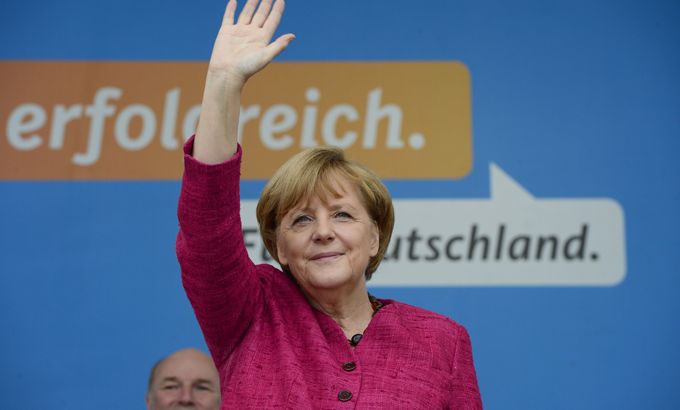Germany rivals conclude election campaigns
Angela Merkel, seeking third term as chancellor, appeals to voters to defend her coalition against Eurosceptics.

German Chancellor Angela Merkel and opposition leaders have wrapped up their final campaign rallies, a day ahead of federal elections in Germany.
Merkel made an appeal to defend Europe and her centre-right coalition against Eurosceptics who threaten to break into the German parliament for the first time in Sunday’s election.
“Lots of people won’t make up their mind until the last minute. Now is the time to reach every undecided voter and get their support,” she told supporters in Berlin, before flying to her Baltic coast constituency for a final campaign stop on Saturday.
With a third of the 62 million voters still undecided and the small Alternative for Germany (AfD) tapping into impatience with eurozone bailouts, Europe’s most powerful leader risks spending her third term in an awkward right-left coalition.
She did not name the AfD, which has emerged in seven months to become the wild card of Germany’s first federal election since the eurozone debt crisis began. The AfD wants Greece and other struggling states to be expelled from the single currency.
Merkel spent half her speech defending the European Union, which had been largely ignored in the campaign because her Christian Democrats (CDU) and the main opposition Social Democrats (SPD) mostly agree on how to tackle the crisis.
“Europe is economically important, yes, but it is much more than that. Next year we’ll be thinking back to the start of the World War One 100 years ago,” she said. “Most of us here have never had to live through war.”
Changed tactics
The AfD’s rapid rise in the polls forced the CDU to change tactics at the last minute.
After studiously ignoring it, the party brought out finance minister Wolfgang Schaeuble this week to attack it as “dangerous” for Germany’s economy.
Europe is economically important, yes, but it is much more than that
Polls put Merkel’s conservatives about 13 percentage points ahead of the SPD, meaning she will almost certainly become the third post-war chancellor to win a third term.
But her coalition with the struggling Free Democrats (FDP) and the combined leftist opposition are neck-and-neck in polls, making the vote in Europe’s largest economy too close to call.
Steinbrueck, who argues that Merkel has spread income inequality, wants higher taxes on the rich and a minimum wage of $11.50 an hour.
“In 28 hours you can get rid of them, you can get rid of the most backward-looking, least capable, most loud-mouthed German government since reunification,” the SPD candidate told a final rally in Frankfurt, Germany’s financial centre.
But he joined Merkel in defending the euro against critical voices like the AfD, whom he calls “rabble-rousers”.
He said a collapse of the euro and return of the deutsche mark would be ruinous for Germany and Europe.
Final results are due within hours of polls closing.
But with margins so close, the country could still face weeks of protracted horse-trading before a clear picture emerges about the makeup and policies of Germany’s next government.